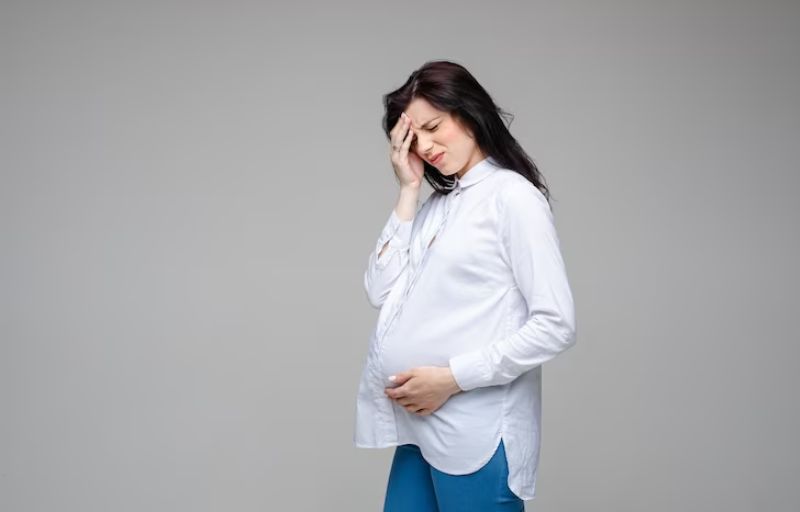Table of Contents:
- Harmonal Changes
- Stress During Pregnancy
- Postpartum Hormonal Changes
- Nutritional Deficiency
- Thyroid Imbalances
- Trauma During Pregnancy
- Changes in Hair Texture
- Prolactin Levels
Hair loss is a common concern during or after pregnancy due to hormonal changes and various other factors. Physicians commonly reassure women that this is a normal occurrence and often resolves on its own post-pregnancy. However, if hair loss persists for an extended period, seeking medical treatment is advisable as there may be underlying reasons such as medication side effects. In this article, we will delve into the main causes and Symptoms of hair loss during or after pregnancy.
Hormonal Changes
Hair fall during pregnancy is attributed to hormonal fluctuations in the body. Elevated levels of estrogen during pregnancy can disrupt the normal hair growth cycle, leading to increased shedding. Similarly, after childbirth, a decrease in estrogen levels may trigger further hair loss. Therefore, hormonal changes play a significant role in causing hair fall during pregnancy.
Stress during Pregnancy
Stress during pregnancy can arise from various factors, including concerns about delivery, health issues such as morning sickness, backache, and anxiety. These stressors can negatively impact hair health as well, as they may disrupt the hair growth cycle due to their effects on overall health. Consequently, managing stress during and after pregnancy is essential for maintaining optimal hair health.

Also Read: Hair Loss- Causes, Symptoms, Prevention, and Treatment
Postpartum Hormonal Changes
After pregnancy, the body undergoes a series of hormonal changes as it transitions back to its pre-pregnancy state. These hormonal fluctuations can disrupt the normal hair growth cycle, leading to hair loss during and after pregnancy. The body experiences significant adjustments during this period, impacting the hair growth system as a whole.
Nutritional Deficiency
During pregnancy, the body’s demand for nutrients, vitamins, and minerals increases to support growth and development. Conversely, deficiencies in essential nutrients such as vitamins, iron, and biotin can adversely affect hair health, leading to significant hair loss during or after pregnancy. Therefore, ensuring adequate intake of these vital nutrients is crucial for maintaining healthy hair during this period.
Thyroid Imbalances
Thyroid imbalances can contribute to hair loss and thinning hair due to their disruptive effects on the body. Hypothyroidism and postpartum thyroiditis are two types of thyroid conditions known to impact hair health. Hypothyroidism can cause hair to become brittle, thin, and prone to shedding due to medication side effects. Postpartum thyroiditis may also lead to temporary hair loss. Both conditions stem from hormonal changes in the body, contributing to hair fall issues.
Trauma During Pregnancy
Anxiety related to childbirth or pregnancy complications can sometimes lead to temporary hair loss. However, this issue typically resolves on its own after pregnancy. Fear and stress during pregnancy may exacerbate hair fall-related problems. Thus, physical trauma experienced during pregnancy can be a significant contributing factor to hair loss issues.
Changes in Hair Texture
During pregnancy, hormonal fluctuations can alter the texture of hair for some women, leading to a thinner and frizzier appearance. These changes in hair texture may persist into the postpartum period. Such transformations in hair texture, along with hair fall, are often attributed to hormonal fluctuations experienced during pregnancy.
Prolactin Levels
While the increase in prolactin levels, the hormone responsible for milk production, during pregnancy and breastfeeding can also affect hair growth. Prolactin has the potential to disrupt the hair growth cycle, resulting in increased hair fall during pregnancy for some women. Consequently, many women experience hair fall issues during and after pregnancy for a certain period.
Hair loss is a common issue during pregnancy, often resolving on its own as it is temporary. However, there are steps every pregnant woman can take to care for their hair during this time:
- Maintain a balanced diet rich in essential vitamins and minerals such as iron and protein.
- Try to manage stress levels through daily practices such as meditation and yoga. These techniques are effective in reducing stress during pregnancy.
- Consult a healthcare provider if any health issues, such as thyroid disorders, arise.
- Practice good hair care habits, including avoiding tight hairstyles.
- Remember that postpartum hair loss is temporary, and hair health typically improves after delivery.
Conclusion
Pregnancy is a transformative phase for every woman, often accompanied by various complications, including hair loss. It’s crucial for every pregnant woman to prioritize their diet, ensuring it’s rich in essential nutrients to support overall health, including hair health. Additionally, regular healthcare checkups are essential to address any health disorders such as thyroid issues or skin allergies, with treatments and checkups conducted under proper medical guidance. During pregnancy, it’s advisable to avoid hair styling practices that may exacerbate hair loss issues, as this problem often resolves naturally over time following childbirth.
Thanks for reading our blog
I hope you found useful information in our blog. We appreciate your crucial time if you find it exclusive Please give us your suggested feedback. To find more blogs Go to the Home Page
